Filter by
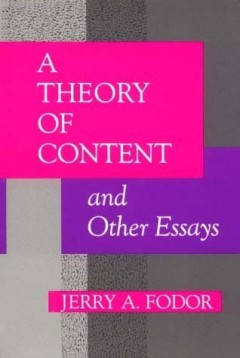
A Theory of Content and Other Essays
A Bradford book."OCLC-licensed vendor bibliographic record.
- Edition
- -
- ISBN/ISSN
- 9780262287999
- Collation
- 1 online resource (xii, 270 pages)
- Series Title
- -
- Call Number
- -
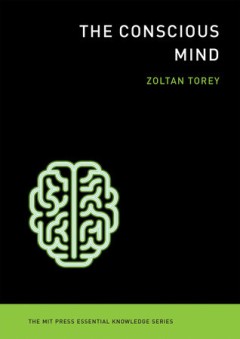
The conscious mind
An account of the emergence of the mind: how the brain acquired self-awareness, functional autonomy, the ability to think, and the power of speech."How did the human mind emerge from the collection of neurons that makes up the brain? How did the brain acquire self-awareness, functional autonomy, language, and the ability to think, to understand itself and the world? In this volume in the Essent…
- Edition
- -
- ISBN/ISSN
- 9780262319300
- Collation
- 1 online resource (xii, 191 pages).
- Series Title
- -
- Call Number
- -
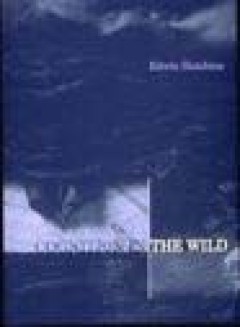
Cognition in the wild
Edwin Hutchins combines his background as an anthropologist and an open-ocean racing sailor and navigator in this account of how anthropological methods can be combined with cognitive theory to produce a new reading of cognitive science. His theoretical insights are grounded in an extended analysis of ship navigation - its computational basis, its historical roots, its social organization, and …
- Edition
- -
- ISBN/ISSN
- 9780262275972
- Collation
- 1 online resource (xviii, 381 pages) :illustrations
- Series Title
- -
- Call Number
- -
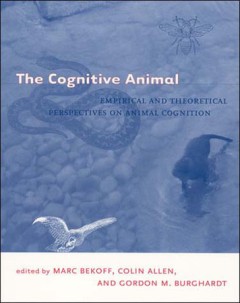
The Cognitive Animal: Empirical and Theoretical Perspectives on Animal Cognition
The fifty-seven original essays in this book provide a comprehensive overview of the interdisciplinary field of animal cognition. The contributors include cognitive ethologists, behavioral ecologists, experimental and developmental psychologists, behaviorists, philosophers, neuroscientists, computer scientists and modelers, field biologists, and others. The diversity of approaches is both philo…
- Edition
- -
- ISBN/ISSN
- 9780262268028
- Collation
- -
- Series Title
- -
- Call Number
- -
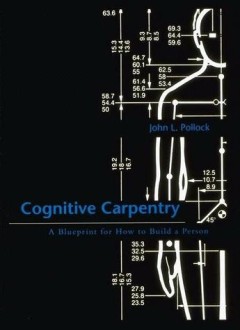
Cognitive Carpentry: A Blueprint for How to Build a Person
A sequel to Pollock's How to Build a Person, this volume builds upon that theoretical groundwork for the implementation of rationality through artificial intelligence. Pollock argues that progress in AI has stalled because of its creators' reliance upon unformulated intuitions about rationality. Instead, he bases the OSCAR architecture upon an explicit philosophical theory of rationality, encom…
- Edition
- -
- ISBN/ISSN
- 9780262281751
- Collation
- 1 online resource (xiii, 377 pages) :illustrations
- Series Title
- -
- Call Number
- -
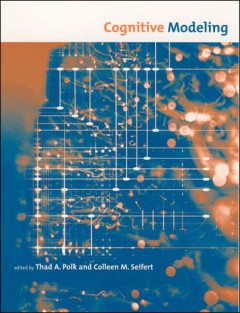
Cognitive Modeling
Computational modeling plays a central role in cognitive science. This book provides a comprehensive introduction to computational models of human cognition. It covers major approaches and architectures, both neural network and symbolic; major theoretical issues; and specific computational models of a variety of cognitive processes, ranging from low-level (e.g., attention and memory) to higher-…
- Edition
- -
- ISBN/ISSN
- 9780262281744
- Collation
- 1 online resource (xxi, 1270 pages) :illustrations.
- Series Title
- -
- Call Number
- -
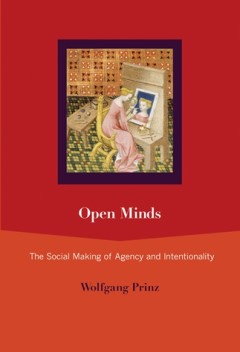
Open minds :the social making of agency and intentionality
A novel proposal that the cognitive architecture for volition and cognition arises from particular kinds of social interaction and communication.In Open Minds, Wolfgang Prinz offers the novel claim that agency and intentionality are first perceived and understood in others, and that it is only through practices and discourses of social mirroring that individuals come to apply these features to …
- Edition
- -
- ISBN/ISSN
- 9780262301695
- Collation
- 1 online resource (xvi, 341 pages)
- Series Title
- -
- Call Number
- -
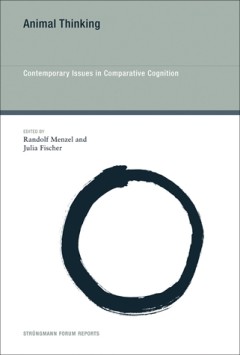
Animal thinking :contemporary issues in comparative cognition
"Eighth Ernst Str?ungmann Forum held Sep. 26-Oct. 1, 2010, Frankfurt am Main.""Do animals have cognitive maps? Do they possess knowledge? Do they plan for the future? Do they understand that others have mental lives of their own? This volume provides a state-of-the-art assessment of animal cognition, with experts from psychology, neuroscience, philosophy, ecology, and evolutionary biology addre…
- Edition
- -
- ISBN/ISSN
- 9780262298988
- Collation
- 1 online resource (xi, 342 pages) :illustrations (some color).
- Series Title
- -
- Call Number
- -
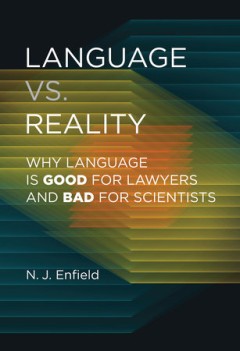
Language vs. reality :why language is good for lawyers and bad for scientists
"Argues that the primary function of language is not to describe the physical world but to manage the social one. Aimed at a general readership"--OCLC-licensed vendor bibliographic record.
- Edition
- -
- ISBN/ISSN
- 9780262368766
- Collation
- 1 online resource (ix, 298 pages) :illustrations
- Series Title
- -
- Call Number
- -
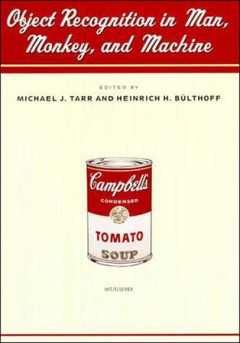
Object recognition in man, monkey, and machine
The contributors bring a wide range of methodologies to bear on the common problem of image-based object recognition. These interconnected essays on three-dimensional visual object recognition present cutting-edge research by some of the most creative neuroscientific, cognitive, and computational scientists in the field. Cassandra Moore and Patrick Cavanagh take a classic demonstration, t…
- Edition
- -
- ISBN/ISSN
- 9780262287609
- Collation
- 1 online resource (217 pages) :illustrations.
- Series Title
- -
- Call Number
- -
 Computer Science, Information & General Works
Computer Science, Information & General Works  Philosophy & Psychology
Philosophy & Psychology  Religion
Religion  Social Sciences
Social Sciences  Language
Language  Pure Science
Pure Science  Applied Sciences
Applied Sciences  Art & Recreation
Art & Recreation  Literature
Literature  History & Geography
History & Geography